Drybase BBA Tanking Slurry: Superior Waterproofing Solution
If you need a high-performance tanking slurry that’s able to resist the toughest of conditions, Drybase BBA Tanking Slurry is an excellent choice. This cementitious, pre-bagged BBA-approved waterproofer can be used on both horizontal and vertical surfaces, providing long-lasting protection in all seasons and conditions. It’s been tested to resist water pressure up to 7 bar (approx. 70m head) making it an ideal choice for a wide range of surfaces and structures.
Key Features
- BBA Approved: Drybase Tanking Slurry has been certified and approved by the British Board of Agrément (BBA), ensuring its high quality and performance.
- Versatile: From water retaining structures like swimming pools to below-ground structures like basements and car parks, and even simple damp-proofing above ground, Drybase BBA Tanking Slurry is an effective multi-surface waterproofer.
- Vapour Permeable: It prevents water penetration while allowing the natural transfer of moisture vapour, providing an effective moisture barrier without trapping condensation.
- Efflorescence-Free: Dries efflorescence-free, making it ideal for use around steel to prevent rebar corrosion.
- Easy to Apply: Can be applied by brush, trowel, or render spray machine, offering flexibility and ease of use.
Strong Bond
Drybase BBA Tanking Slurry can be used on clean, flush-pointed brickwork, rendered walls, and open-pore concrete substrates. Once applied, it forms a tough coating for stronger adhesion to Drybase Universal Mortar and other concrete or masonry substrates.
Whether you’re handling small or big jobs, the exceptional bonding capability of Drybase Tanking Slurry makes it a great choice for both vertical and horizontal surfaces. Drybase Universal Mortar may be used to repair any damage prior to application, while water leaks may be filled with Drybase Waterproof Plug.
Applications
It’s perfect for a variety of applications, including basement and cellar waterproofing, underground car parks, retaining walls, lift pits, fish ponds, water features, and above-ground walls.
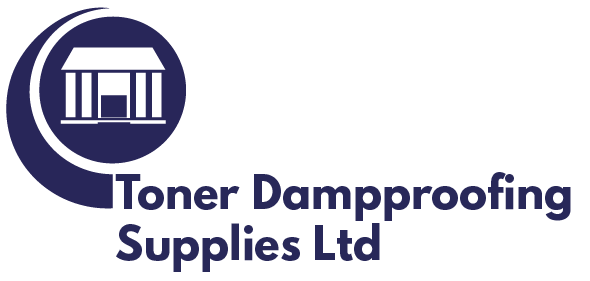
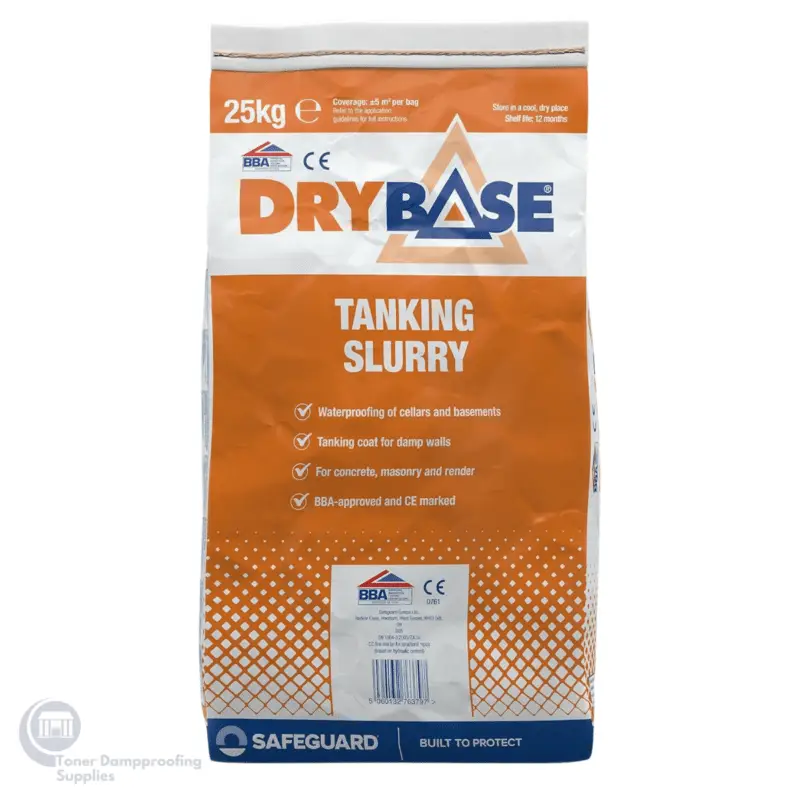
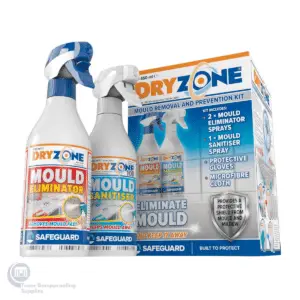
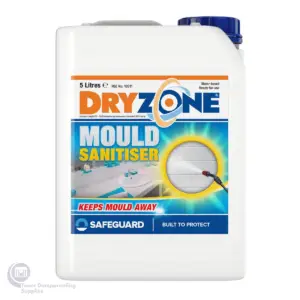
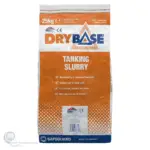
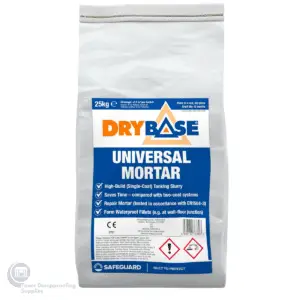
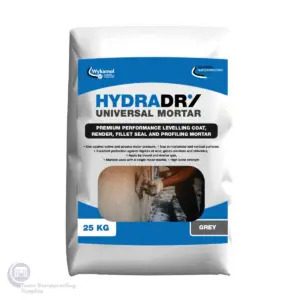
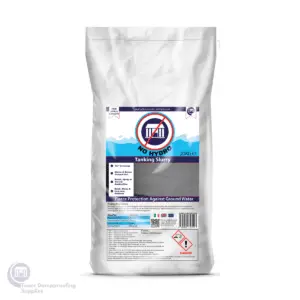
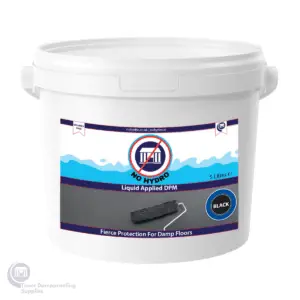
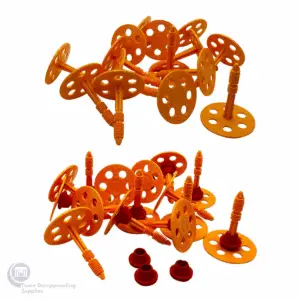
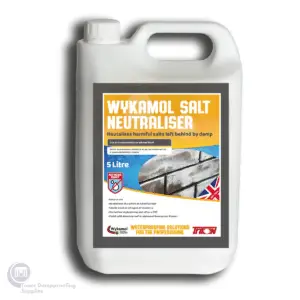
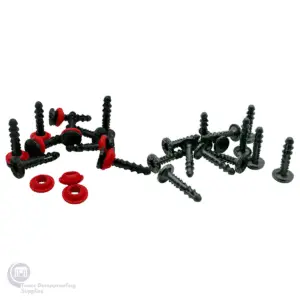

Reviews
There are no reviews yet.